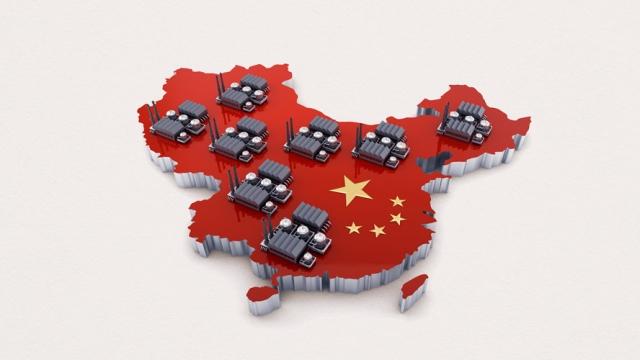China reduced taxes in 2019 to jumpstart an economy suffering from a trade war with the U.S. The government extended tax cuts into 2020 as the COVID-19 pandemic sent financial shockwaves through domestic and international markets. With China expected to lead the worldwide economic recovery in 2021, the country is resuming normal tax activities. International legal professionals expect Chinese tax authorities to recover lost revenue by increasing audits on foreign companies operating in the country.
Firms doing business in China must stay ahead of heightened enforcement by understanding what kind of activity tax authorities will look for, how to determine if their company is liable, and the risks of being audited.
What Kind of Business Activity Will Chinese Tax Authorities Target?
Legal experts expect China's State Tax Authority (STA) will take a harder look at firms that created a permanent establishment (PE)—without paying the appropriate taxes.
China uses PE to determine a U.S. company's tax liability. U.S. companies without a physical presence in China owe taxes on 10% of their in-country income. Companies with a physical presence are considered to hold a PE and must pay higher taxes. The STA requires these companies to pay a Corporate Income Tax (CIT) of 25%. The tax applies to income earned in China and any other country tied to the PE.
China clarified its definition of a PE in the face of increased lockdowns and international travel restrictions during COVID-19. Because many foreign workers were unable to leave the country, the STA determined that U.S. companies with employees working from home in China—as opposed to a designated office space—did not constitute a PE.
As the STA revealed its business-friendly interpretation of PE during COVID-19, the Chinese government also eased enforcement efforts while dealing with the pandemic's effects. As a result, some companies gained a false sense of security regarding PE enforcement in China. With the STA poised to step up audits of international companies, firms must determine whether they have unknowingly set up a PE.
How Do You Determine if Your Company Qualifies as a Permanent Establishment in China?
The United States-The People's Republic of China Income Tax Convention is a treaty that outlines tax rules between the two countries. The agreement identifies four situations in which China considers U.S. companies to have set up a PE:
Service PE: Companies set up a service PE only if they have provided "the furnishing of services…within the country for a period or periods aggregating more than six months within any twelve-month period." Services can include:
- Technical activities
- Management
- Design
- Training
- Consultancy
- Professional services
Agent PE: Companies set up an agent PE when they give an employee the power to represent the company while signing contracts in China. Professionals like lawyers, accountants, and brokers are often considered independent and do not constitute an agent PE designation.
Fixed Place PE: Companies set up a fixed place PE when they designate "a fixed place of business through which the business of an enterprise is wholly or partly carried on." These places can include a:
- Branch or office
- Place of management
- Factory
- Workshop
- Mine
Construction PE: Companies set up a construction site PE when they set up or operate a building site for more than six months.
How Can Your Company Avoid the Costs of Unknowingly Operating a Permanent Establishment in China?
When companies operate as PE but only pay the 10% CIT, they set themselves up for costly audits.
The TSA published a recent case study on a multinational oil and gas company that qualified as a PE but did not pay the appropriate tax rate. The government held the company liable for back taxes equivalent to $2.9 million, along with late fees equal to $376,000. The company also had to divert legal and finance teams from their core responsibilities to deal with the STA. Because of the risk of fines, late fees, and added work for internal teams or external partners, international companies doing business in China must stay vigilant about their PE status.
One common trigger for PE status is the amount of time a company spends in China. As previously mentioned, China considers U.S. companies to have set up a PE if they spend more than six months of a 12-month period in the country. However, Chinese authorities count even one day of activity in the country as an entire month. For example, if a U.S. firm sent an employee to China to conduct business for one day per month over seven separate months, the STA would consider that activity as constituting seven months—even if the services only took place on seven days of the year. As such, the company would have crossed the threshold for PE status.
In addition to the U.S., countries that follow the six-month rule in China include:
- The United Kingdom
- Germany
- Switzerland
- Italy
- New Zealand
Other countries follow the 183-day rule. Under this system, the STA considers a company to have set up a PE if the company operates in China for more than 183 days in a 12-month period. Countries that follow this rule include Singapore, Finland, and Belgium.
Navigate International Tax Challenges With a Global Leader
As one of the world's most powerful economies, China presents foreign companies with enormous opportunities to create new revenue streams, hire top talent, and grow global market share. Expanding into China also presents real challenges, as exemplified by the country's PE rules. That's why companies looking to mitigate risk while capitalizing on business opportunities in China must proceed with care.
For smaller firms without the internal legal or financial resources to interpret complex foreign tax laws, turning to a global expansion expert allows businesses to operate internationally with full peace of mind. Velocity Global's team of worldwide experts has the knowledge and experience to help companies navigate tax challenges and mitigate risk in over 185 countries. Reach out today to find out how we can help you maximize expansion opportunities in China and any other international market.
Topic:
Compliance



